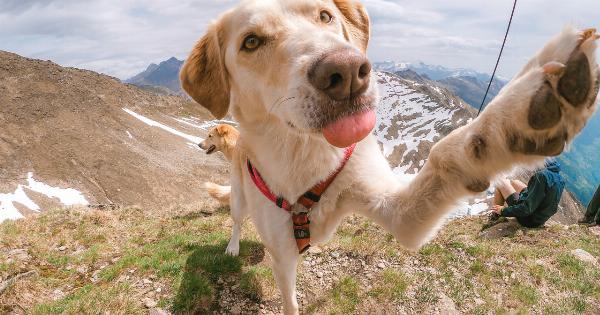Pets are one of the primary sources of comfort and companionship for humans. Dogs are the most popular pets worldwide, with over 470 million dogs kept as pets globally. Dogs are considered loyal, friendly, and provide emotional support.
Many people find happiness in petting dogs, which is an excellent way to socialize and interact with them. However, the ethical question arises, “Is it ethical to pet a random dog without consent?” This article will carefully examine this question.
What is Consent?
The Oxford dictionary defines consent as “permission for something to happen or agreement to do something.” When we talk about petting dogs without consent, we mean that we are not taking permission from the dog or its owner before petting. Why is consent necessary? It is necessary to respect other beings’ rights and protect ourselves from any harm.
Although dogs cannot say ‘yes’ or ‘no,’ they have certain behaviors that indicate whether they are happy, scared, or uncomfortable. Before we analyze the ethical implications of petting random dogs without consent, let’s dive into some reasons why people like to pet random dogs.
Why Do People Want to Pet Random Dogs?
There are various reasons people might want to pet random dogs. Some do it because they are animal lovers, and they want to show their affection. Others pet dogs to feel better about themselves or to reduce stress.
Petting dogs can release oxytocin, a hormone that helps relieve stress and anxiety. Also, children love to pet dogs, and it can teach them compassion, kindness, and empathy.
Risks of Petting a Random Dog Without Consent
Although petting dogs can provide us with comfort and happiness, petting a random dog without consent can also be dangerous. Dogs have emotions and unique personalities.
Some dogs are friendly and love to be petted, while others can be protective and territorial. A dog might bite or attack if it feels threatened, scared, or uncomfortable. In addition, petting a dog without consent can also be stressful for the dog. Imagine a stranger coming up to you and hugging you without your permission.
How would you feel? Dogs have a right to their personal space, just as we do.
The Ethical Implications of Petting a Random Dog Without Consent
Now, let’s dive into the ethical implications of petting a random dog without consent. Ethically, we must respect other beings’ rights, whether human or nonhuman. Dogs are living beings and deserve to be treated with respect.
By petting a dog without consent, we are not respecting its space, boundaries, and rights. The dog cannot say ‘no’ or ‘stop,’ so it is up to us to observe the dog’s body language and behaviors. Ethically, we must ensure that we do not cause harm or discomfort to another being.
Alternatives for Petting a Random Dog
There are many alternatives to petting a random dog without consent. If you want to pet a dog, look for dogs that are with their owners, and ask for permission before petting. Most dog owners are happy to let you pet their dogs if you ask politely.
Alternatively, you can look for designated dog parks or animal shelters where you can interact with dogs in a safe environment.
The Legal Implications of Petting a Random Dog Without Consent
In many countries, petting a random dog without consent can also be illegal. If a dog bites or attacks someone, the owner can be held liable for negligence if they haven’t taken adequate precautions to ensure the dog’s safety.
In some countries, owners can face heavy fines or even jail time if their dog bites someone. Therefore, it is essential to ensure that we are aware of the laws regarding dogs in our area.
The Bottom Line
Petting dogs can be a great source of comfort and happiness. However, we must ensure that we do it in a way that is safe, respectful, and ethical. Petting a random dog without consent can be dangerous for both the dog and the human.
Dogs have a right to their personal space and boundaries, and we must respect them. By following the above guidelines, we can ensure that we interact with dogs in a way that is safe, respectful, and enjoyable for everyone involved.






























